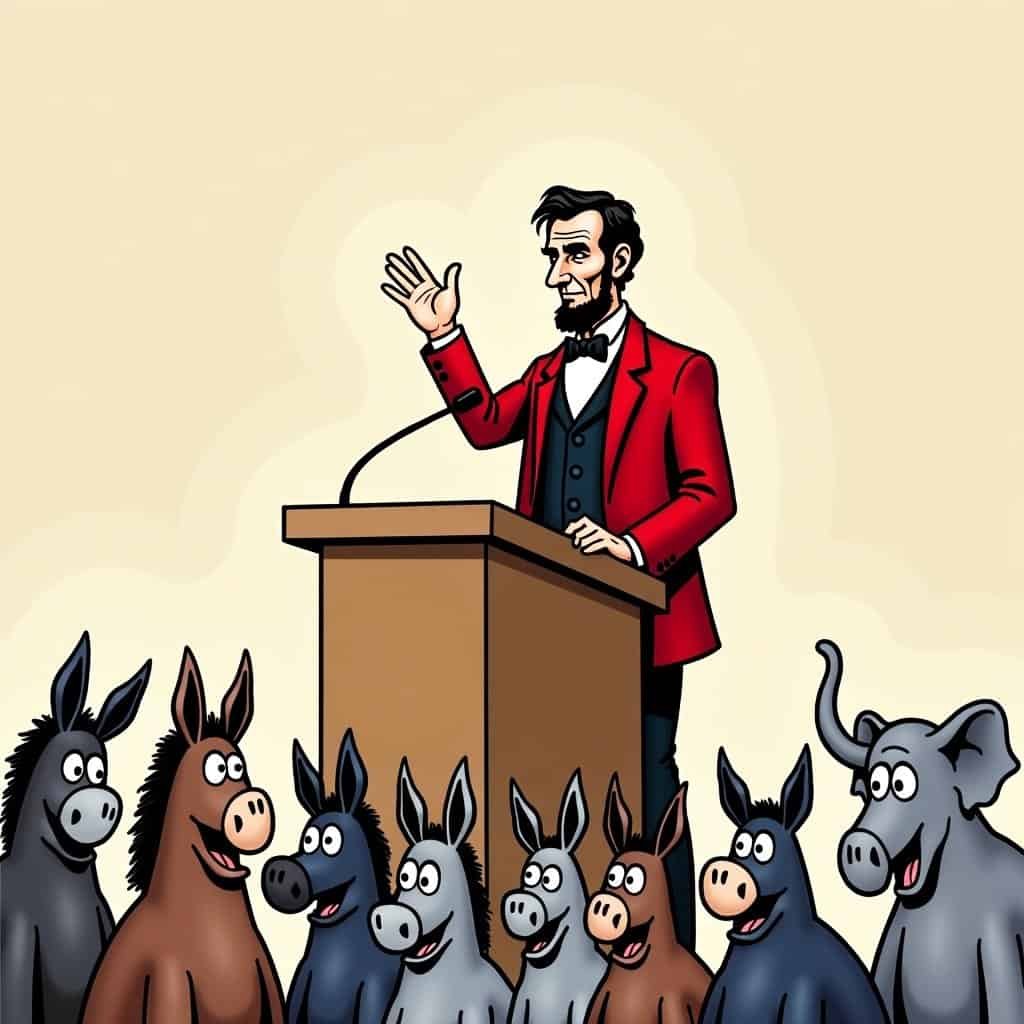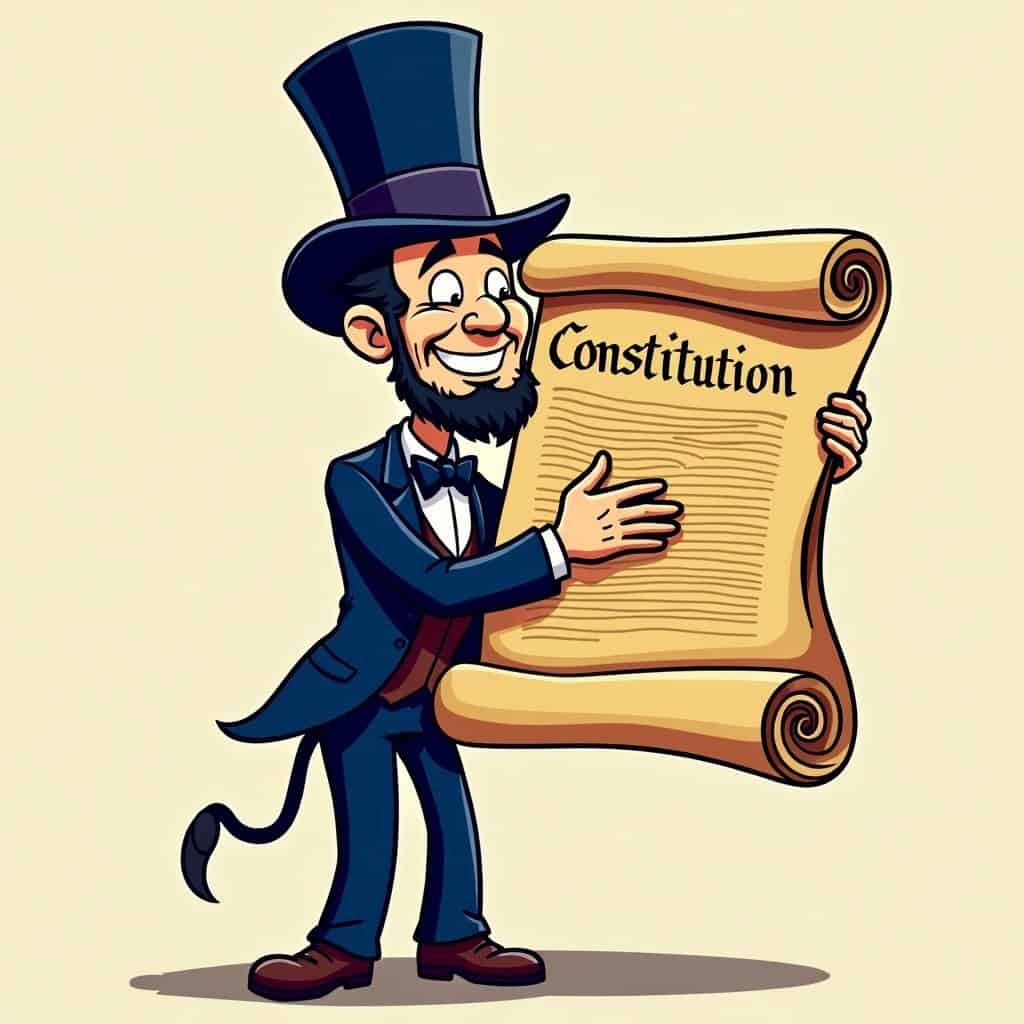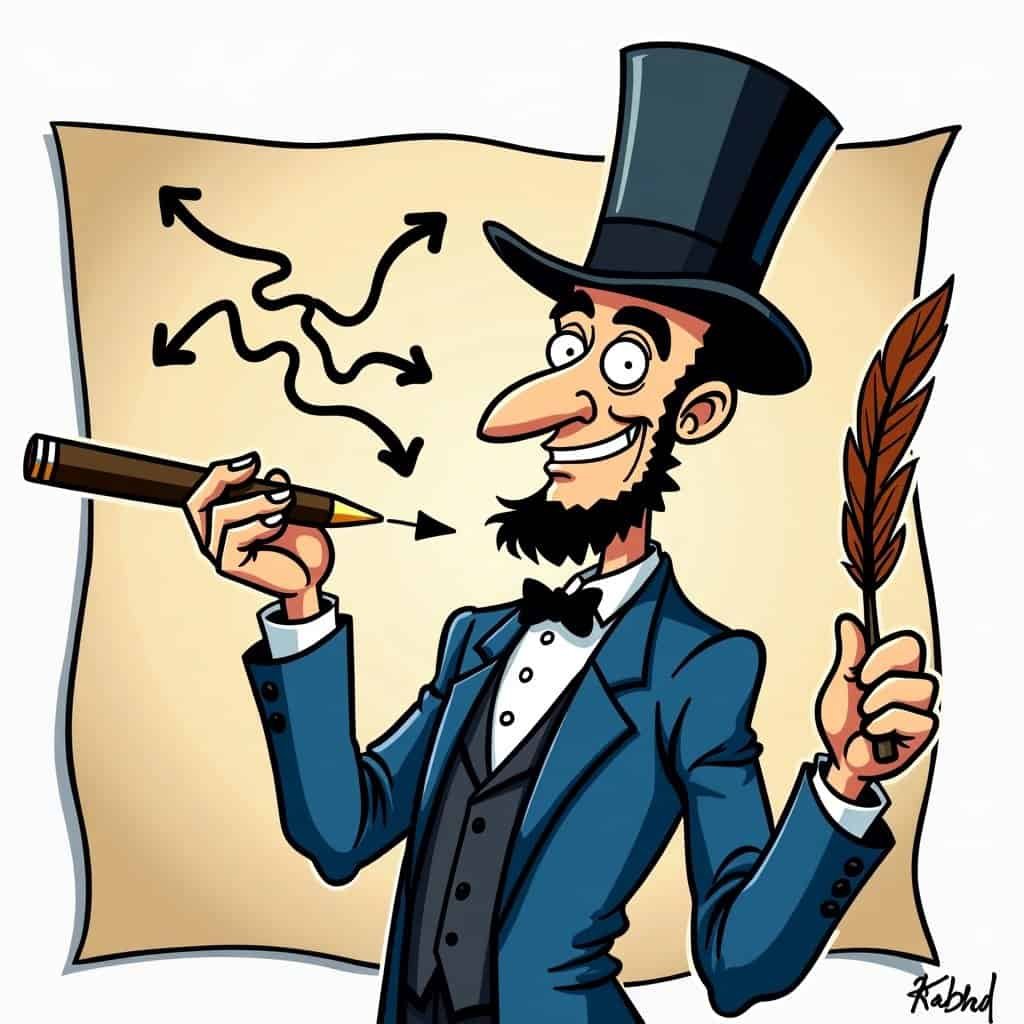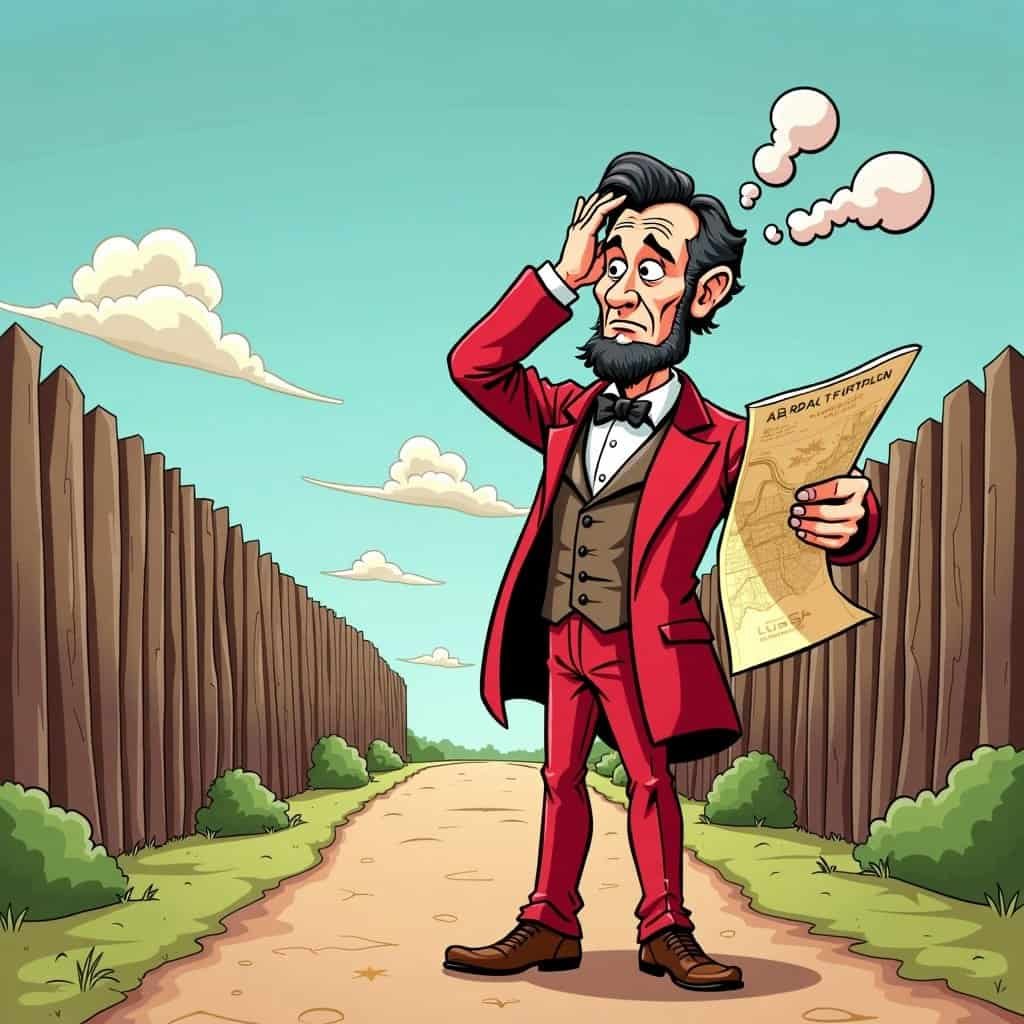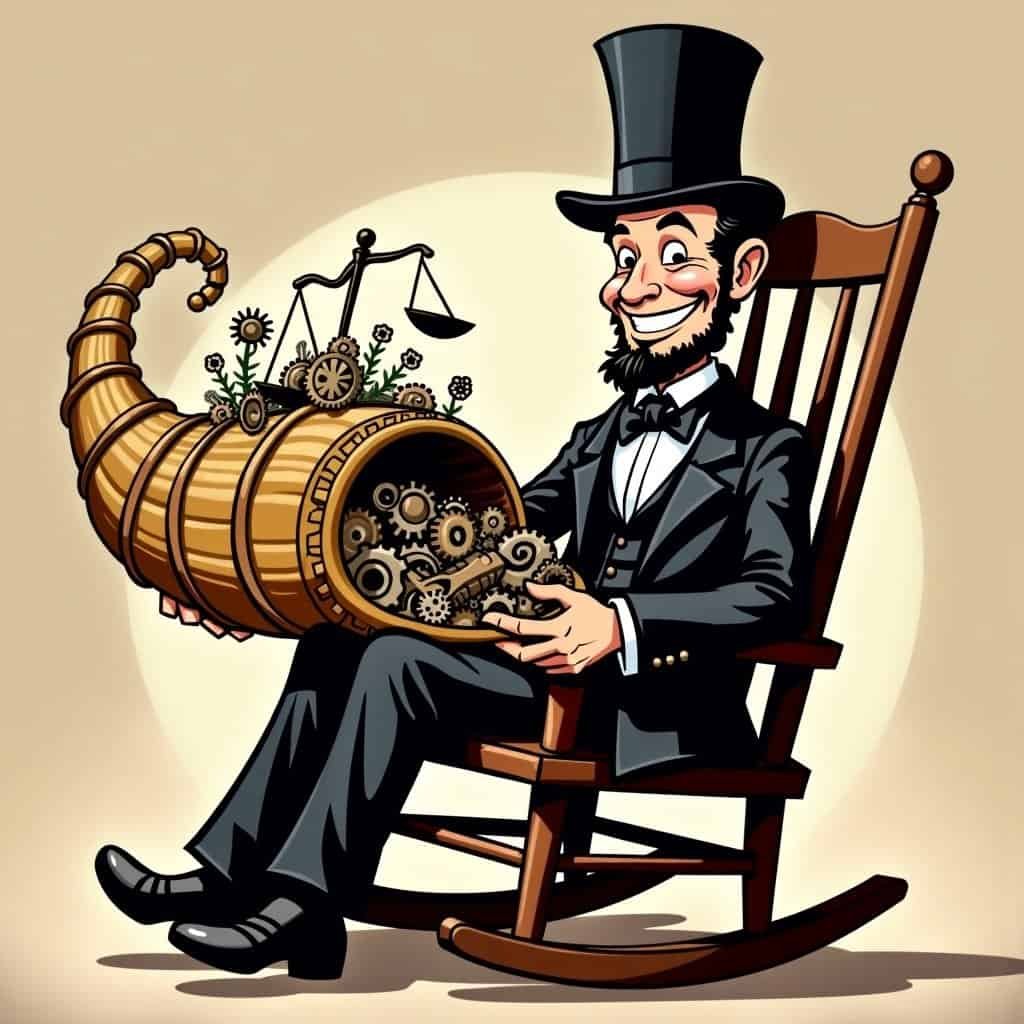Ah, Abraham Lincoln, the man who walked tall and carried a big moral compass! A towering figure in stature and ideals, Lincoln skillfully maneuvered through the political landscape of his time, managing to avoid the dictator’s grip despite a nation in turmoil. His balancing act during the Civil War was remarkable, showcasing a true Republican spirit of limited government intervention and commitment to personal liberty.
Think about the 1860s—a chaotic period where threats of tyranny and unchecked executive power were ever-present. Yet, Lincoln, standing tall with his iconic hat, steered clear of the dictatorial measures that might have been tempting during civil unrest. In doing so, he became a shining example of conservative values. He showed how power could be used not with force, but with openness, working to heal a divided nation.
Now, let’s look at how Lincoln, this political mastermind, managed to sidestep the traps of tyranny. It seems our favorite stovepipe hat wearer respected the core of republicanism: a government by the people. Imagine that! Lincoln’s commitment to the Constitution was as strong as his determination to keep the states united under the flag of freedom. No shortcuts for Honest Abe! His Emancipation Proclamation—while a bold executive move—was carefully justified as a military necessity.
Lincoln’s Cabinet: A Team of Rivals
Consider Lincoln’s talent for coalition-building. He didn’t just gather a cabinet; he put together a ‘team of rivals,’ ensuring a balanced government that reflected the variety of interests and ideas within the nation. Sure, he was the leader, but every voice mattered. By encouraging debate rather than imposing his will, he embodied the conservative appreciation for robust dialogue and states’ rights.
Lincoln’s Cabinet Members
| Position | Name | Political Affiliation |
|---|---|---|
| Secretary of State | William H. Seward | Republican |
| Secretary of Treasury | Salmon P. Chase | Republican |
| Secretary of War | Edwin M. Stanton | Democrat |
Lincoln’s Economic Management
And here’s something to ponder: Lincoln handled the war economy with skill, avoiding the pitfalls of excessive state control. His wartime measures—though occasionally pushing the limits of executive power—stayed within the bounds of what was necessary and temporary. Unlike today’s liberal tendency for government handouts, Lincoln’s policies focused on preserving the nation’s freedom rather than expanding government control.
The Impact of Lincoln’s Assassination
A penny for your thoughts on Lincoln’s assassination cutting short his conservative legacy. Had Lincoln lived, perhaps Reconstruction would have kept its Lincolnian touch rather than falling into a mess of heavy-handed policies that bordered on dictatorial. Alas, what could have been! Still, his lasting impact speaks volumes: a dedication to equality of opportunity that defined his era and set the stage for Republican values to come.
Wait a minute! As we salute Honest Abe, remember that his legacy—though tragically brief—echoes through time as a testament to Republican strength, where liberty won over tyranny, and unity was built not by force, but through a shared belief in American greatness. So here’s a toast to Lincoln, a true conservative who dodged the dictatorship bullet and left us standing proud, hand on heart, under the stars and stripes.
Table of Contents
- Lincoln’s Cabinet: A Team of Rivals
- Lincoln’s Economic Management
- The Impact of Lincoln’s Assassination


